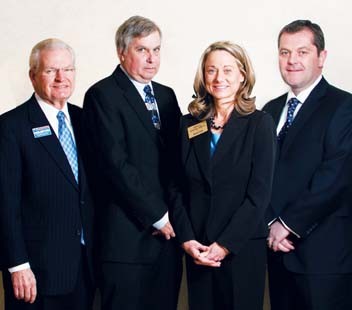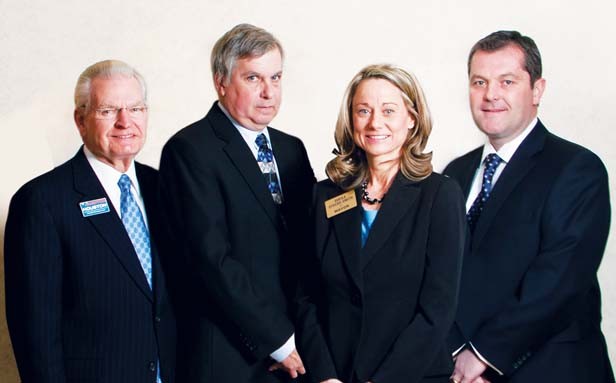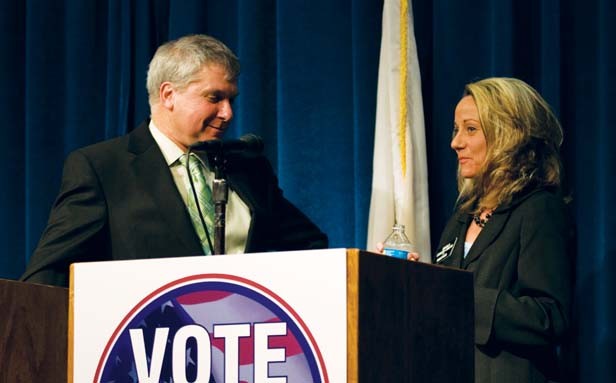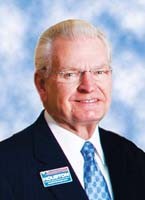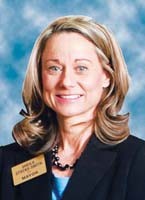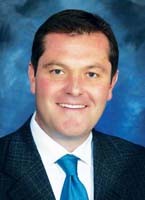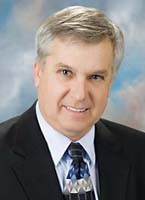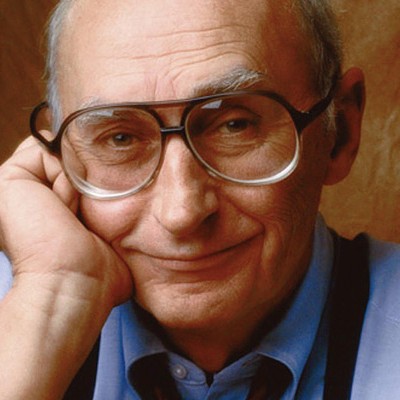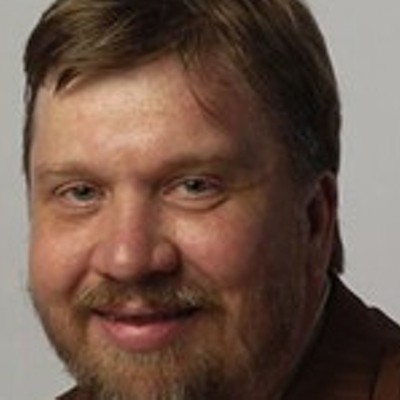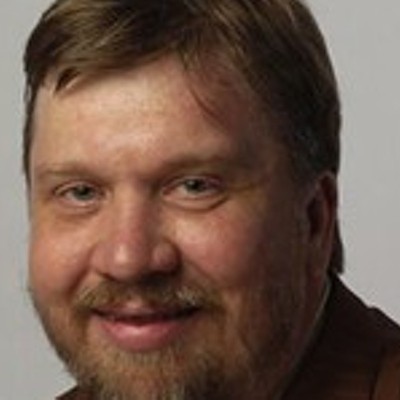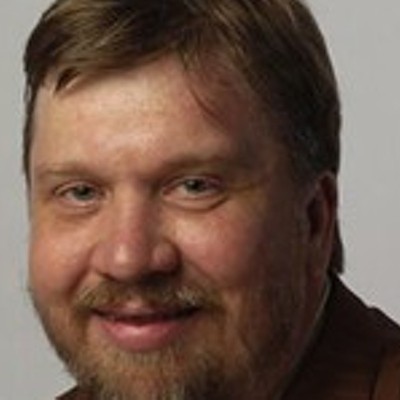Every day, the rusty steel rails of the 10th Street railroad tracks carry trainload after trainload of coal, manufactured items and raw materials through Springfield. But those tracks carry more than just freight trains. They carry the potential to unite or divide Springfield, depending on how the city adapts to a proposed plan to consolidate all rail traffic on the 10th Street tracks. The outcome of that project will undoubtedly affect the city’s future in terms of business and job growth, race relations, neighborhood development and infrastructure, and what happens on 10th Street, mostly paid for with federal rather than city funds, will depend largely on the leadership of Springfield’s next mayor.
The rail consolidation is just one of the many issues facing the city’s next leader.
While the primary role of the mayor is to oversee the city’s government, an engaged mayor also plays a major part in determining the direction of the city’s social fabric as well. That secondary role requires a profusion of plans for economic and community development, two ideas that are intertwined. Harmonious and forward-looking communities attract business growth, while healthy schools, churches and arts organizations tend to sprout up wherever there are successful businesses. So supporting the betterment of neighborhoods is supporting economic development – and vice-versa.
There are four candidates in the race for mayor – Mike Coffey, Mike Houston, Frank Kunz and Sheila Stocks-Smith. With the general election approaching on April 5, Springfield voters will soon choose a leader for the next four years, a leader who will be expected to navigate the city through tough issues while bringing together neighborhoods, interest groups and cultural institutions for the betterment of all.
Abandoned buildings
One of the most nagging problems in Springfield is abandoned houses, especially on the city’s east and north sides. High concentrations of crumbling houses impede economic and community development by lowering surrounding property values and warding off both potential neighbors and business investors. Mike Houston, 67, former mayor who served from 1979 to 1987, was the first mayor candidate to announce a plan to combat blight. He proposes hiring two attorneys dedicated to collecting fines on abandoned houses and enforcing building codes, while also passing an ordinance allowing the city to foreclose on properties whose owners accumulate more than $2,000 in fines.
Mike Coffey, 40, chair of the Prairie Capital Convention Center board, says he doesn’t support hiring more attorneys, but he would look at new ways to handle abandoned properties. He says the city itself owns 40 abandoned buildings that it can’t afford to tear down, so he would consider ideas like using abandoned buildings as demolition training for labor groups.
“Before we start hiring lawyers and stacking up more bills, let’s take care of the buildings we already own,” Coffey says.
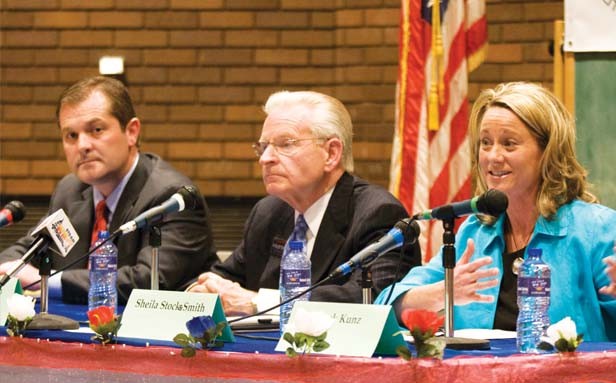
Frank Kunz, 58, now finishing his third term as Ward 3 alderman, says the city should continue what it currently does: buy abandoned houses at tax sales and tear them down.
Sheila Stocks-Smith, 49, former education liaison for the City of Springfield, says that while she hasn’t come out with a specific plan to deal with abandoned properties, the issue would be a priority for the department that would result from her proposed merger of the Office of Planning and Economic Development and the Office of Community Relations.
Department merger
Stocks-Smith sees combining the departments as a way to better coordinate economic and community development, though some people question whether it would create a conflict of interest. Planning and Economic Development works to attract businesses and encourage growth, while Community Relations primarily investigates allegations of housing, employment or credit discrimination by private companies within Springfield.
“If you’re trying to attract a new business and then you have to turn around and investigate that same business, I think there could be a possibility for a conflict,” says Nicholas Stojakovich, former chair and current member of the Community Relations Commission. “The commission has a role to play in the wider community to promote harmonious relations between different people groups. … There are remarkable communications that go on already between the two offices. The personalities that currently handle those functions have a good working relationship, and I don’t really see the need to combine them under one roof.”
Julie Hubbard, current chair of the commission, says she would like more information about how the merger would work before she makes up her mind.
“The two departments seem to be antithetical in purpose, but I also understand in theory this could be done,” Hubbard says. “If someone wants to propose this, they would have to reconcile the seemingly crossed purposes the two departments seek to achieve.”
Stocks-Smith defends her proposal as a way to bring the community together, saying the departments were previously combined along with other functions in the now-defunct Department of Public Affairs under former mayor Ossie Langfelder.
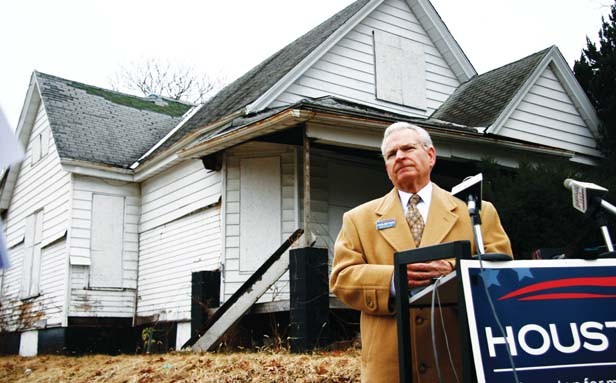
“It can be done and still keep your separate functions,” Stocks-Smith says, adding that instead of creating a conflict of interest, the merger would push the city to be upfront with businesses about the conduct and behavior expected of them.
“I actually see this as a strengthening of Community Relations, bringing it into the fold and linking those departments’ functions,” she says. “The current functions are not going away, and I’m not even saying they have to live in the same place. ...As we’re going out and striking deals with the economic development side, it isn’t this separate thing. The community development and what we expect of their responsibility to the community is all part of the package.”
Discrimination
Discrimination, particularly in the context of racism, has long been a problem in Springfield, from the 1908 Springfield race riots to the infamous “noose incidents” at CWLP more than 100 years later. From the vantage point of development, discrimination is a stumbling block that hinders cohesion on other issues like the rail consolidation and job growth. While discrimination may not be a community development issue in a conventional sense, it is an issue that must be addressed for the city to see equitable progress on development.
At a recent mayor candidate forum hosted by the Citizens Club of Springfield, Houston, Coffey and Stocks-Smith agreed that they would have handled the “noose incidents” differently than the previous administration did.
“One of the things we have to realize is, whether it is real or perceived, for those who perceive it, it is real,” said Houston, adding that he would have fired the men responsible for hanging the alleged nooses. “I think that we cannot have those types of incidents in city government, that we cannot allow people who work in city government to do those types of things, and that ultimately we should be terminating people when we have any type of incident like this so that you make sure that is not something that continues to happen in city government.”
Stocks-Smith said she would examine the city’s policies for dealing with alleged incidents of racism to make sure those policies actually exist and are up to date. Coffey says his administration would have “zero tolerance” for such incidents and would hold department managers responsible.
Kunz, who called himself the only candidate “who actually lives in a minority area,” said the racial divide “is not an everyday conversation with the people I live with. They’re more worried about their streets, their sidewalks, whether the police are going to show up or the fire trucks.” He says the race issues he has seen as alderman have been “blown out of proportion.”

Minority employment
Still, Kunz said he would seek to hire more minorities for city jobs by reaching out to younger generations and ending patronage. Many young people don’t see city jobs – particularly police and fire – as a career path, he says, and previous administrations used city government as a way to reward friends, families and political allies with jobs.
“In my administration, I’ll take care of that,” Kunz said. “There won’t be any patronage. Everybody will get an equal chance to get the jobs, and what I’ve seen in 12 years I’ve been an alderman, that has not been the case. Most jobs have been filled way before they were ever posted, and that won’t happen with me. Any qualified minority will have as good a chance [as anyone else] to work for the City of Springfield.”
Coffey and Houston both say the city needs a change of attitude and a constant effort in minority recruitment, but Houston takes it a step further, saying tests for police and fire jobs would be graded as “pass/fail” instead of ranking applicants into groups, and his administration would hire 25 percent minorities for the first two years of his term. At the end of two years, that effort’s progress would be evaluated and changed accordingly, he says. Stocks-Smith says her administration would make it a priority to hire minorities and women, especially to upper-level management positions.
Jobs and business growth
Jobs in general are always in demand, but the economic recession has made them even more valuable. Between the first quarter of 2007 and the second quarter of 2010 – the latest quarter for which data is available – the Springfield metro area lost more than 5,000 jobs, according to the Illinois Department of Employment Security. Each of the four candidates says he or she will work to foster job and business growth. As with many other issues, Kunz makes no specific promises here, saying only that he’ll do his best.
The other three candidates – Coffey, Houston and Stocks-Smith – say they will examine the city’s business permit process and regulations to determine where there are unnecessary barriers to development. The three candidates each support a Tax Increment Finance district for MacArthur Boulevard, while Coffey and Houston also point out opportunities for enterprise zones and other economic development tools. Kunz does not support a MacArthur TIF.
Houston emphasizes that he will change the “attitude and environment” of business in Springfield so the city doesn’t add unnecessary costs and delays to a project, while Stocks-Smith says she will form a task force to recommend changes to existing business regulations. The city’s “developers’ agreement,” which requires developers to pay for infrastructure improvements on previously undeveloped land, has also become a popular target for elimination by Stocks-Smith, Houston and Coffey.
Small businesses would be a focus for Houston’s administration, he says, noting that about 85 percent of Springfield businesses are “small” businesses. He says he would work to attract good business franchise opportunities with local owners, create a small business incubator to lower and share costs, and talk with existing small business owners to offer expansion help – all efforts he says he pushed in his previous administrations.
Medical district
The Mid-Illinois Medical District is another focus for two of the candidates – though to different degrees. Stocks-Smith has made developing the district – which includes St. John’s Hospital, Memorial Medical Center, SIU School of Medicine and other facilities – a cornerstone of her campaign. She says she would reorganize the Office of Planning and Economic Development to have specialists focused exclusively on job creation in the health care sector, while also appointing her yet-to-be-named Planning and Economic Development director to the Mid-Illinois Medical Commission. She calls for increased efforts to seek state and federal grants, while promoting the district outside of Springfield through partnerships with medical facilities, educational institutions and more. Houston has also called for developing the medical district, though he has not announced a specific plan to do so.
Infrastructure
The candidates agree that before new businesses will invest in Springfield, however, the city must improve its infrastructure. Crumbling streets, backed up sewers and broken or missing sidewalks discourage businesses from investing in Springfield, they acknowledge, saying that the city must stop “raiding” infrastructure funds for other purposes.
Kunz says the city could save money by purchasing construction equipment and having city workers make the needed improvements.
“The overhead by hiring the outside big companies is just killing us when it comes to how much it costs us to do a quarter mile of street,” he says. “I think we have the manpower, we have the talent. If we buy them the equipment to do it, we can get a lot more done for the City of Springfield than is being done this way.”
Though Houston has laid out specific plans for many other issues, he refuses to disclose his plan to pay for infrastructure improvements, saying it would be “jumped on” by his opponents. Questioned whether that approach requires too much trust from voters, Houston says it does not.
“No one has laid out a plan as to how they’re going to fund infrastructure,” Houston says. “To put out a plan in terms of financing infrastructure right now, it immediately becomes a target as to why you can’t do it. I will, after the election, lay out a plan to the general public. …It’s a matter that any time anybody brings up an idea during the course of a campaign – I’ve got three opponents, and they’re going to go after me.”
Houston did say, however, that more frequent cleaning of sewers would help alleviate flooding.
Hunter Lake
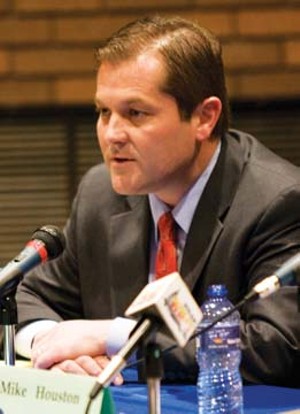
Houston says he would pursue the project if it did not require a new, expensive environmental study to be completed. Otherwise, he says, he would sell the land reserved for the project. Kunz says a second lake will someday be needed, but he would likely wait until enough money is available because it doesn’t cost the city anything to hold onto the land. Coffey declines to take a position on the project, saying only that he would study it and take action within the first year of his administration. Stocks-Smith says the project would not be a priority in her administration, and she would consider turning the reserved land into a temporary park because there currently is no money to build the lake.
Budget reality
And there is the crux of the problem: there is no money for much of anything. Under the direction of Mayor Frank Edwards, the city passed a budget in February with about a $1 million reserve. During budget discussions with the city council, Edwards characterized that sum as inadequate, pointing to the likelihood of the city’s bond rating being lowered due to limited reserve funds.
Indeed, in early March, Moody’s Investor Services, a credit analyst company, lowered the city’s bond rating one notch, meaning any future borrowing by the city will likely carry a higher interest rate. Add to that an expected $4 million budget deficit in the next fiscal year because of a deferred debt payment, along with the fact that total city revenues this fiscal year have come in about $5.3 million behind last year and about $8.2 million behind what was estimated. It seems increasingly likely that there will be very little money – if any – to pay the up-front and incidental costs that often arise from projects that could eventually save the city money and build up the city’s economy and communities.
Though the candidates all say streamlining government will yield savings, no one has offered specific numbers or even estimates of how much could be saved. Meanwhile, each of the candidates says he or she will not raise taxes. Out of all the promises made in this campaign, that may prove the hardest to keep.
Still, the decisions of the next mayor will set the tone for development far beyond the end of his or her four-year term, even if the city’s highest hopes don’t come to fruition. Uniting the city will require both leadership and vision for a stronger, more beautiful and more equitable Springfield.
Contact Patrick Yeagle at [email protected].
| |
Mike Houston Frontrunner in Feb. 22 primary with 32 percent; former two-term mayor from 1979 1987; has most specific plans for city improvements, but may have misstepped by appointing two rivals from the primary to positions in his prospective administration; has plans for “healing racial divisions”%u2008 and minority hiring in police and fire. |
| Sheila Stocks-Smith Second place in the primary with 19 percent; former grant writer for Springfield School District 186 and former education liaison under former mayor Tim Davlin; prefers collaborative style of management; strong alliance with U.S. Sen. Richard Durbin of Springfield. |
|
| Mike Coffey Third place in primary with 18.5 percent; member of Prairie Capital Convention Center board for 12 years, chair since 2003; accused Sangamon GOP and Houston of conspiring to buy or push him out of the race, GOP support withdrawn |
|
| Frank Kunz Fourth place in primary with almost 11 percent; Ward 3 alderman for 12 years; skipped most mayoral debates on grounds of independence; makes no promises except transparency and an end to patronage |

